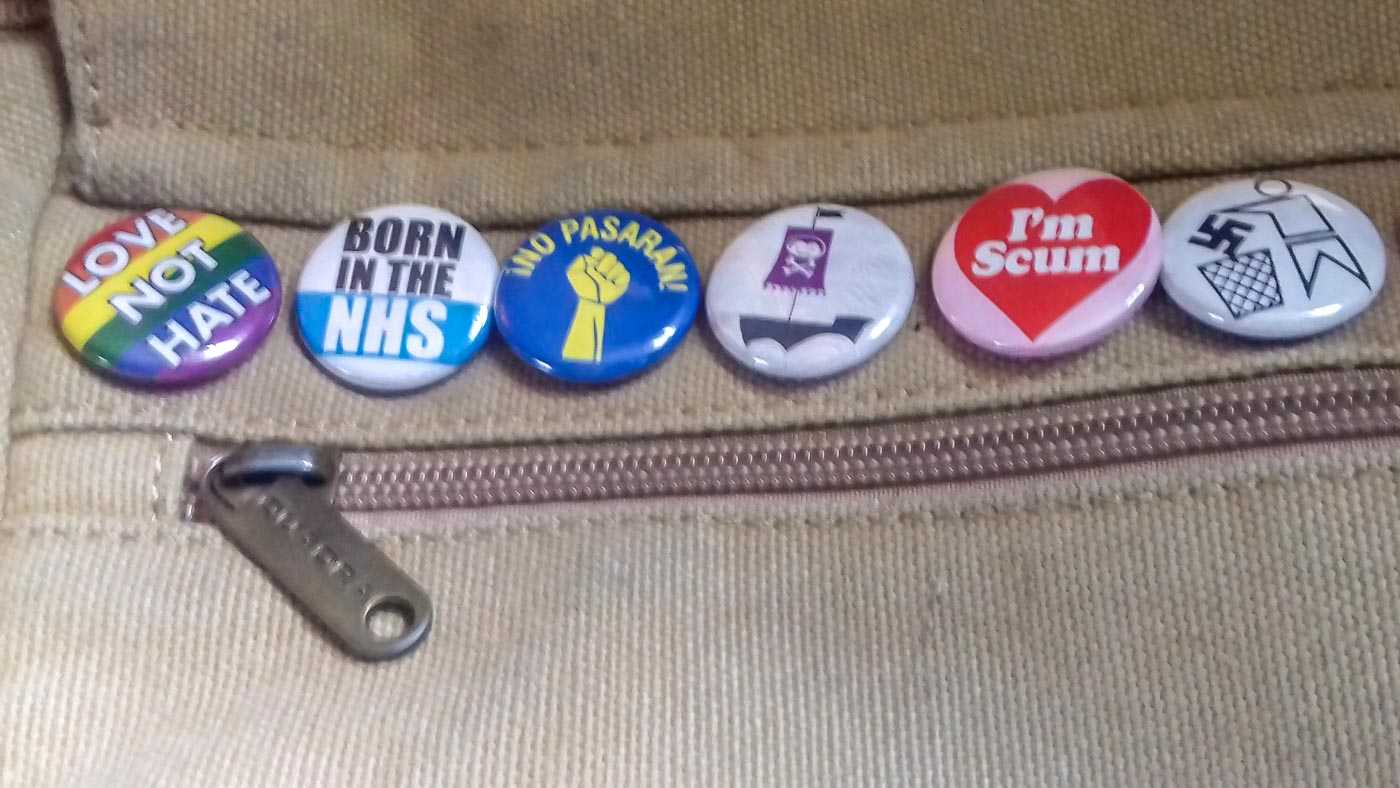Welcome to Episode 28 of my “Travel Tales From Beyond The Brochure” podcast.
I hope if you’ve been protesting, that you’ve taken on board the hints and tips given in last week’s “Beginner’s Guide to Protesting”! The images of the badges I’ve used for this pod, btw, have been provided with permission from the very same V who was kind enough to provide that guide.
This week I’m bringing you an episode of three examples where the act of protest has helped to change the world. Or at least, change aspects of the British political system – just to show it can happen here just as much as it happens everywhere else.
I give an overview of three events – the 1832 Reform Act, the Battle Of Cable Street in 1936, and the Poll Tax Riots of 1990. Three different eras, but each definitely interesting in its own right, to show examples when protests work.
Maybe I’ll go back to doing a travel podcast next week….
Topics discussed in this episode then include:
- This pod is about when protests work. I hope your protests have worked so far
- Nadine Dorries is not a Nazi
- Background to the 1832 Reform Act – the global situation
- Examples of how much the system needed reforming – rotten boroughs, bribery, and under-representation
- The Catholics and the hard-right form an unlikely alliance
- First attempt at reform fails, snap general election shows people want reform
- Second attempt at reform fails, riots occur
- Third attempt at reform fails, government resigns, five days of near revolution, and offers me the ability to use of the worst puns in history
- Fourth attempt at reform passes. Although not itself huge in hindsight, it proved reform was possible
- Battle of Cable Street – overview of 1936
- The rise (and gradual decline) of Oswald Mosley and the British Union of Fascists
- Preparation for a march through the East End of London, from both sides
- ‘No Pasaran’ and the protests against the march
- The failure of the march, and the government response
- The Anti-Poll-Tax Riots – introduction to 1990
- Local Taxation 101 For Beginners
- The ‘Community Charge’ & its implementation
- ‘Can’t Pay Won’t Pay’
- Trafalgar Square, 31 March 1990 – order of battle, and subsequent engagement
- Political fallout and the end of an era. Well, sort of.
You can listen via the feed above, or via Spotify, or on your podcast app of choice 🙂 Let me know if it isn’t, by the way, and I’ll see what I can do. In addition, a PDF transcript of this episode is available by clicking here.
As always, if you have anything to say about the topic, or indeed about my podcasting in general, leave a comment or let me know. There is a Facebook group for my podcast that you’re free to join: Click here!
I also now have a Patreon! If you like what you hear, and want to access exclusive content (or just to show your appreciation), then head on over to my page and donate to me!
There are no contributions in this episode, fairly self-evidently.
Note the sample at the start of the pod is a recording of part of the resignation speech of Margaret Thatcher, on 28 November 1990. I’m not sure of the legal status of a recording of this nature….
